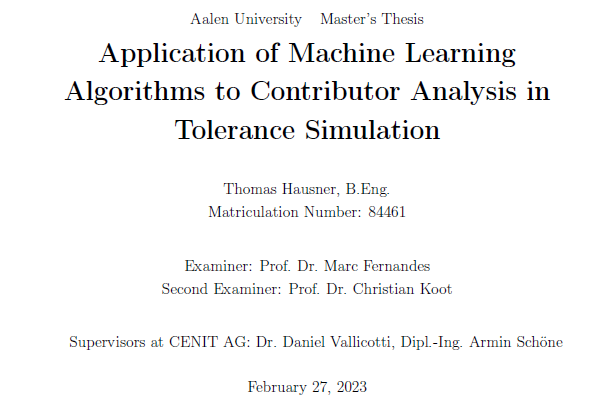The classical approach of contributor analysis in tolerance simulation assumes linearity and independence between input tolerances which is not always true for real cases. The thesis gives an overview of techniques from sensitivity analysis and interpretable machine learning, and empirically tests and compares their applicability on contributor analysis for tolerance analysis. A focus is put on surrogate modeling with tree-based models.

Finally, a proposal is made for a process that can be implemented in the tolerance simulation software 3DCS.
This process utilizes a CatBoost regression surrogate model and Sobol indices to evaluate the contributions including nonlinear relationships and interactions between contributors. Additionally, possible visualization methods are presented.
Contents:
DCS will never share your information with a third party or add you to a mailing list without permission. Read our privacy policy to learn more about how DCS protects your information.